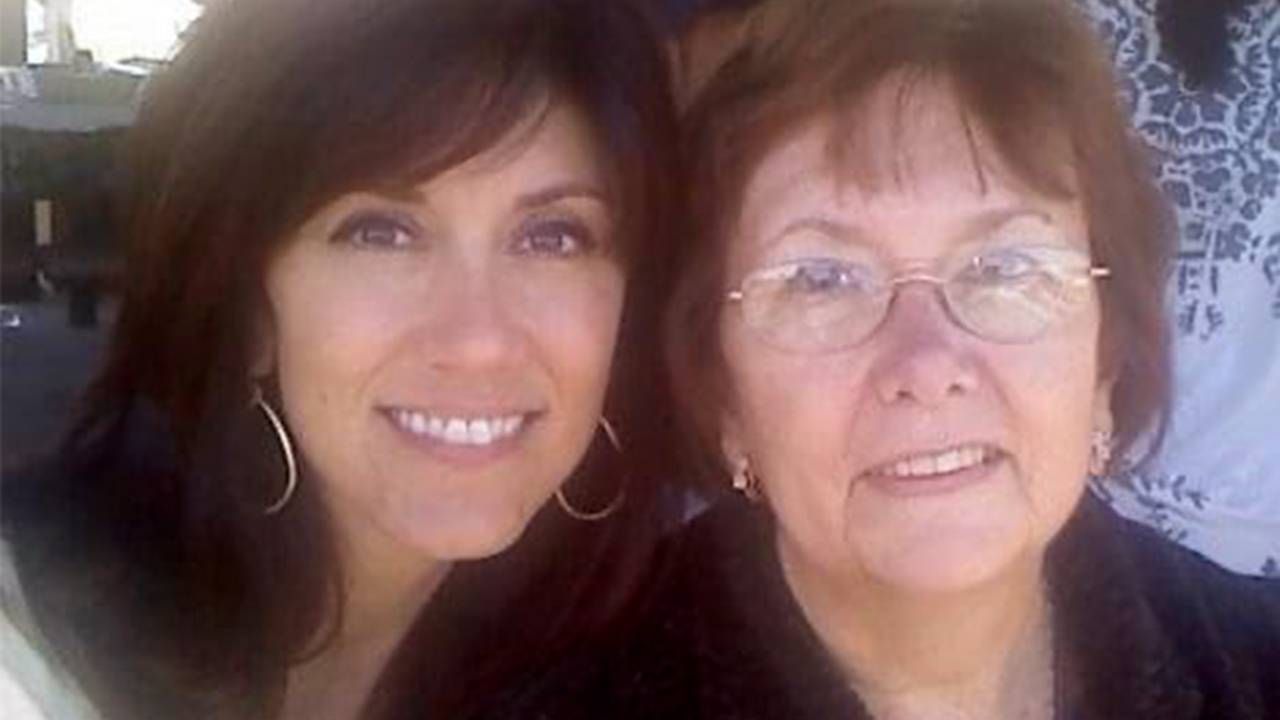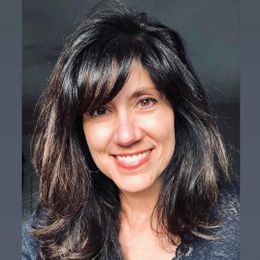A Dementia Clinical Trial Turned My Loss to Purpose
After my mother's death, I joined a clinical trial to help researchers find new treatments for Alzheimer’s and other forms of dementia
As the hard platform that I was lying on slid back into the MRI tube — my head secured for minimal movement — I let my mind wander back a few years. Mom and I were sitting at the kitchen counter. I was paying her bills, writing the 'To' and the amount, and having her sign the checks to stay involved. Numbers and the ability to understand money became extremely difficult shortly after my mother was diagnosed with dementia.

There was a sadness to this process — handling money for my mother, who had balanced her checkbook to the penny ever since I could remember. I handed her the first check and showed her where to sign. I heard both frustration and pain in her voice as she asked, "How do you spell my last name?"
I sighed, leaned my head against hers, and hoped with all my might that osmosis would allow the disease to leave her brain and go into mine. I'll take it. Please, please give it to me.
At 52, I had enrolled in a dementia clinical trial at Yale University ... I volunteered as what they call a "healthy brain" subject.
"Kristen? You OK in there?" asked the voice in my headphones. "Yes, I'm good," I said, my words echoing in the tube.
"Some questions will come up on the screen. Press that clicker when you see the correct answer," the technician directed.
"OK," I thought, my heart beating fast. "Let's do this. Concentrate."
Mom's Lewy Body Dementia diagnosis came when she was just 61.
She had been falling, had forgotten to close the garage and the front door at night, got lost coming home from her Rotary Club meeting. (She was only the second female elected as president.)
She was hallucinating, "I swore your brother and you were in the living room here with me watching TV," she said once, and neither of us were in the state. Many doctor's appointments and cognitive tests led to a neurologist's diagnosis.
I Decided to Move
I was living in San Diego and Mom was in New York's Hudson Valley. We were best friends. With that diagnosis came my decision. I packed up 14 boxes and my cat and moved back East to be with her on this journey. It was my turn to take care of her.
Because she was young, and because Lewy Body tends to have a shorter duration than other forms of dementia, things changed quickly. I had to learn on my feet: how to be a caregiver, how to communicate with someone who has dementia.
Key lessons included going into her reality, not arguing, but distracting and re-directing her when she was angry or agitated about something she could no longer do.
One conversation is seared into my mind. We were just sitting together shortly after I moved home, when she asked me, "Kris, I am a good person, right?" "Yes Mom! You are the best person I know!" I replied.
She then quietly said this: "Then why did someone pour acid in my ears?"
That's what she thought was happening to her. Sigh.
A Fast Decline
Mom had a heart attack and after a failed stint at physical rehab — it's impossible for someone with dementia to respond to "lift your right leg three times" — our family made the decision to move her into a nursing home. She was very social and my brother and I thought she would do better around people, doing activities.
She never came back to where she was before the heart attack. She quickly lost the ability to walk and feed herself. When she couldn't think of words or phrases, she'd trail off and say, "Oh well," and then she just stopped speaking.
I visited every day that I could and managed the medical aspects of her care; my brother handled selling her house to pay for that care. It was a team effort. We worked together navigating the murky waters, mourning losses along the way, reveling in the joyful moments and escorting her to the end of her life.
"Kristen, you can relax now and enjoy these videos," said the technician.
If a few hours of my time could help someone living with Alzheimer's now or in the future, sign me up for another one!
I figured this was the halfway point of my cognitive assessment MRI. At 52, I had enrolled in a dementia clinical trial at Yale University.
The clinician-researcher, Dr. Carolyn Fredericks, is studying the progressions of types of dementias that present with visual or language issues. I volunteered as what they call a "healthy brain" subject.
I had two sessions of pen-and-paper questions, and this was my MRI. The doctor was gathering data from healthy controls like myself to compare the results to those participants with early-onset dementia.
The videos were pleasant. I smiled. I wondered if my happy brain waves were registering as such. I imagined they were.
Toward the end of her four-year dementia journey, Mom and I would watch "Wheel of Fortune" and "Jeopardy" together. We'd listen to music. Mom liked Chuck Mangione's trumpet and Michael Buble's voice.
I'd lay in bed with her and cry quietly. Nurses from all shifts said they knew I'd been there by the mascara stains on her pillowcase.
Nine days after her brain atrophied to the point where she could no longer swallow food or liquid, she died. I was with her, holding her hand. It was the saddest day of my life.
How I Am Making a Difference
"How's it going in there?" I was jolted into the present, in the MRI tube.
"Fine," I said, wondering if I was almost finished.
I ruminated on what I was doing. When Mom was sick, I switched careers from being a TV journalist to working for the Alzheimer's Association. Caregiving was so hard, and I learned that you don't have to go through it alone.
There are so many resources: support groups, education classes, a 24/7 Helpline. I turned my pain into purpose and now help other caregivers and spread the message of the importance of research to find new treatments and eventually a cure for all types of dementia.
My mother continued to take care of me, even through her illness, by providing me a new passion and a second career.
"I think my mom would be proud."
"Kristen, you are all set. We are going to slide you forward now," I heard in my headphones.
Big exhale. I'd been in there for two hours. It didn't feel that long. If a few hours of my time could help someone living with Alzheimer's now or in the future, sign me up for another one!
You can sign up too, and make a difference. The Alzheimer's Association's clinical matching service is TrialMatch. It's like Match.com for clinical trials.
You fill out your information, and clinical trials you qualify for in your area are sent to you. Your information is NOT given out; it's up to you to reach out to the researchers. Studies range from answering questions online once a quarter to being involved in an investigational drug trial for safety.
Hundreds of thousands of people have access to clinical trials, which can help researchers get closer to new treatments and eventually, a cure. But according to the Alzheimer's Association, recruiting and retaining trial participants is now the greatest obstacle, other than funding, to developing the next generation of Alzheimer's treatments.
Clinical trials are for the well and unwell, and for caregivers, too. I was happy to do my part and shared that with the doctor, who said she would call me in two years for another MRI.
"Thank you for the opportunity," I said. "I think my mom would be proud."
No, I know she would be. As proud as I am of her and the way she lived her life with grace, kindness and love.


